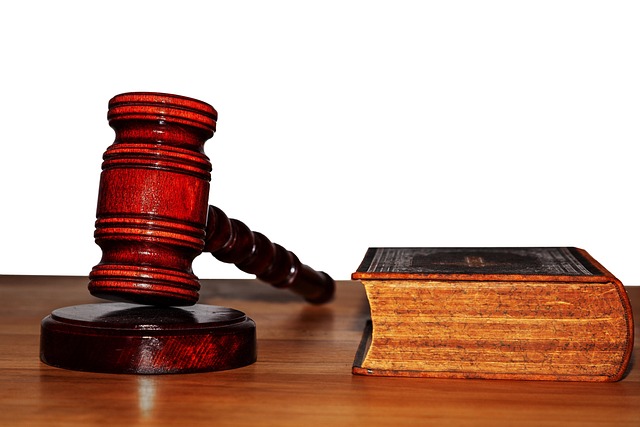RF Regulatory Agencies balance innovation promotion and safety safeguarding through strict regulations and investigations. Protecting Defendant Rights During Trial is crucial, especially in high-stakes cases, where swift action, skilled legal representation, and strategic challenges ensure fairness and due process, preventing unfair targeting or conviction. An attorney's deep knowledge of RF regulations navigates complex terrain, achieving positive outcomes that protect rights and foster public trust.
In today’s interconnected world, Radio Frequency (RF) technology permeates our daily lives. RF Regulatory Agencies play a crucial role in ensuring these technologies operate safely and ethically. This article delves into the intricate process of their investigations, from understanding agency roles to protecting defendant rights during trials. We explore the initial steps of an investigation, the legal framework surrounding defendants’ rights, and strategies for ensuring fair trials. By grasping these aspects, individuals and businesses can navigate RF regulatory landscapes with greater confidence and preparedness.
- Understanding RF Regulatory Agency Roles
- When Investigations Begin: Initial Steps
- Defendant Rights During Investigation
- Legal Representation in RF Trials
- Protecting Rights: Ensuring Fair Trials
Understanding RF Regulatory Agency Roles

RF Regulatory Agencies play a pivotal role in ensuring the safe and efficient use of Radio Frequency (RF) technologies. Their primary mandate is to balance the need for technological advancement with the protection of public safety, national security, and defendant rights during trials involving RF-related matters. These agencies are tasked with thoroughly investigating complaints, conducting thorough inspections, and imposing regulatory measures to prevent misuse or unauthorized operation of RF devices.
By upholding rigorous standards, they safeguard consumers from potential harm while fostering innovation in the respective business sectors. In cases of white collar and economic crimes associated with RF technologies, these agencies work collaboratively with legal authorities to secure a complete dismissal of all charges if the accused can demonstrate compliance with regulatory guidelines. This ensures that businesses are held accountable without unduly infringing on their rights.
When Investigations Begin: Initial Steps

When an RF Regulatory Agency begins an investigation, it’s crucial to understand that the initial steps are critical for protecting defendant rights during trial. The agency will first serve a formal notice, outlining the allegations and specific violations suspected. This is when the clock starts ticking, and both the agency and the defendant must act swiftly. In high-stakes cases, where general criminal defense strategies come into play, avoiding indictment becomes paramount.
The initial phase involves gathering evidence, interviewing witnesses, and analyzing relevant data to build a robust case for both sides. Skilled legal representation is essential during this period to ensure that rights are not infringed upon. In particular, experienced attorneys can help navigate the complexities of regulatory law, devise effective strategies, and protect their client’s interests, especially in light of potential consequences that could impact future endeavors in these demanding environments.
Defendant Rights During Investigation

During RF Regulatory Agency investigations, defendant rights are paramount. While agencies have extensive powers to gather evidence, individuals face significant risks, including potential financial penalties and legal sanctions. It’s crucial for defendants to understand their entitlements and actively protect them. This includes the right to remain silent, ensuring any communications with investigators are done so knowingly and voluntarily. Legal representation is also essential; having an attorney skilled in RF regulations can help navigate complex legal terrain and safeguard against evidence that may be obtained improperly.
Protecting defendant rights during these investigations goes beyond mere compliance with procedures. For his clients, achieving extraordinary results often hinges on a strategic approach. This involves challenging questionable practices, such as coercive interrogations or unlawful searches, and ensuring due process is followed at every step. In the realm of white-collar and economic crimes, where evidence must be robust and admissible, a well-prepared defense can make all the difference, demonstrating innocence or minimizing penalties for his clients.
Legal Representation in RF Trials

In RF Regulatory Agency investigations, legal representation is pivotal to protecting the defendant’s rights during trial. Having skilled counsel ensures that all procedural steps are followed meticulously, safeguarding against potential errors that could compromise the case. A robust defense strategy involves comprehensive knowledge of the regulatory framework and the ability to challenge evidence and testimony, aiming for the best possible outcome.
An unprecedented track record of success in these complex cases underscores the importance of competent legal representation. This isn’t merely about achieving a complete dismissal of all charges; it’s about navigating all stages of the investigative and enforcement process with finesse. Attorneys specializing in RF matters can offer strategic guidance, ensuring clients’ interests are not only defended but also advanced, even in the face of challenging regulatory environments.
Protecting Rights: Ensuring Fair Trials

In any legal proceedings, especially high-stakes cases, it’s paramount to uphold the rights of all parties involved. This is particularly crucial when dealing with RF Regulatory Agency investigations, where the stakes can be significant for businesses and individuals alike. Protecting defendant rights during trial is not merely a matter of legal protocol but ensures fairness and due process. A robust general criminal defense strategy is essential to avoid indictment and safeguard one’s interests against potential overreach by regulatory bodies.
The RF Regulatory Agency, tasked with ensuring compliance with telecommunications laws, must balance its investigative powers with the fundamental rights of those under investigation. This includes the right to counsel, a fair trial, and protection from unreasonable search and seizure. By adhering to these principles, the agency can maintain public trust while upholding the integrity of its processes. In navigating complex regulatory cases, avoiding indictment through strategic legal maneuvers is key, ensuring that businesses and individuals are not unfairly targeted or convicted in high-stakes scenarios.
RF Regulatory Agency investigations are a critical aspect of maintaining fair and safe wireless communications. By understanding the roles of these agencies, the initial steps involved in investigations, and the rights of defendants, individuals can navigate these processes with confidence. Legal representation is crucial to protect defendant rights during trials, ensuring fairness and adherence to regulatory standards. In summary, knowledge and advocacy are key to resolving RF investigations successfully while safeguarding one’s interests.






